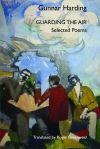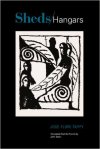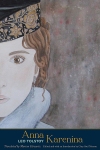
The American Literary Translators Association is pleased to announce the shortlists for the 2015 National Translation Awards in Poetry and Prose. This is the seventeenth year for the NTA, which is administered by the American Literary Translators Association (ALTA), and the first year to award separate prizes in poetry and prose. The NTA is the only national award for translated fiction, poetry, and literary nonfiction that includes a rigorous examination of the source text and its relation to the finished English work.
This year’s judges for poetry are Lisa Rose Bradford, Stephen Kessler, and Diana Thow. This year’s prose judges are Jason Grunebaum, Anne Magnan-Park, and Pamela Carmell. The selection criteria include both the quality of the finished English language book, and the quality of the translation. The winning translators will receive a $5,000 cash prize each, and the award will be announced at ALTA’s annual conference, held this year at the Marriott University Park in Tucson, AZ from Oct. 28-31, 2015. Follow our blog (www.literarytranslators.org/blog), on Twitter (@LitTranslate), or on Facebook (www.facebook.com/literarytranslation) for the announcement of the winners!
PDF of press release available for download here.
The 2015 NTA Shortlist in Poetry (in alphabetical order by author):
 Breathturn into Timestead by Paul Celan (Romania)
Breathturn into Timestead by Paul Celan (Romania)
Translated from the German by Pierre Joris
(Farrar Straus and Giroux)
More than a monumental work of scholarship, Pierre Joris’s 40-year project in translation of the later poetry of one of the twentieth century’s most original and “untranslatable” poets is an extraordinary work of poetry in contemporary English. With seeming ease, Joris conveys the complexity and inventiveness of the original German without oversimplifying or domesticating its difficulty, its dark beauty, or the depth of its ideas. His commentary is also of great value in illuminating the background, sources and meanings of Celan’s singular voice.
 Guarding the Air: Selected Poems of Gunnar Harding (Sweden)
Guarding the Air: Selected Poems of Gunnar Harding (Sweden)
Translated from the Swedish by Roger Greenwald
(Black Widow Press)
In his generous selection from the entire career of this important contemporary Swedish poet, Roger Greenwald makes a major contribution to English-language (and specifically American) poetry. Harding’s jazzy vernacular and its evolution through variations on a lyrical colloquialism that grows increasingly burdened with grief over the course of a lifetime are caught so convincingly in Greenwald’s versions that it’s hard to believe these poems were not composed originally in English. Their natural-sounding fluency moves, pleases and astonishes.
 Wallless Space by Ernst Meister (Germany)
Wallless Space by Ernst Meister (Germany)
Translated from the German by Graham Foust and Samuel Frederick
(Wave Books)
In Ernst Meister’s last collection of poetry, vivid language animates the fabric of daily life, and even the simplest image becomes startling. In Graham Foust and Samuel Frederick’s vibrant, elegant translation of this remarkable German poet each word holds weight and motion, so that we, too, experience the “clamor of consciousness” that emerges poignantly in these poems. At turns big-hearted and humorous, the collection is also steeped in reflections on time and mortality; the “abyss of abysses” is truly never far away. This sparse and effecting book is the third and last of Meister’s trilogy to be translated by Foust and Frederick and published by Wave Books, making it the culmination of a significant collaboration between these two translators.
 In the Illuminated Dark: Selected Poems of Tuvia Ruebner (Slovakia)
In the Illuminated Dark: Selected Poems of Tuvia Ruebner (Slovakia)
Translated from the Hebrew by Rachel Tzvia Back
(University of Pittsburgh Press/Hebrew Union College Press)
This truly impressive and comprehensive bilingual selection spans seven decades of poetry by Tuvia Ruebner, giving a valuable insight into the evolving career of this Slovakian Jewish poet. Ruebner’s poems, gorgeously translated over the last decade by Rachel Tzvia Back, bristle and shimmer; at times they are brutally, heartbreakingly clear (“the morning songs of the humming-birds sound as though their throats are tied”) and at times hushed and meditative (“study the melody/with sealed ears/listen with your hands.”) These translations give us access to the profound depths of Ruebner’s voice and vision, revealing layers that are constantly shifting between biblical, ekphrastic, formal and sound-based concerns. Poems are introduced by the translator in an extensive and engaging introduction to the poet’s life and work, and are followed by lengthy notes, including bibliographic information about Ruebner. This is a truly major work and a beautiful tribute to the career of an important poet.
 Sheds/Hangars by José-Flore Tappy (Switzerland)
Sheds/Hangars by José-Flore Tappy (Switzerland)
Translated from the French by John Taylor
(The Bitter Oleander Press)
The very first lines of Sheds draw the reader into a world of exquisitely arresting imagery and musicality: “The fresh water / of your voice flows / into my thirsty throat / and the windy morning enters / the smoothly combed sky /…/ atop the highest branches / where the magpies hop about /…/ Luminous scissors cut through the darkness,” making the ordinary appear as precious as it is “wobbly” and puzzling. With his skillful translation, John Taylor introduces English readers to the artistry of this Swiss francophone writer with a bilingual publication of her six of poetry series in versions that sparkle and haunt. Excellent, too, is the keen interview with the poet which concludes the book and enriches our understanding of these subtly lyrical and emotionally acute collections of verse.
The 2015 NTA Shortlist in Prose (in alphabetical order by author):
 New Waw, Saharan Oasis by Ibrahim al-Koni (Libya)
New Waw, Saharan Oasis by Ibrahim al-Koni (Libya)
Translated from the Arabic by William M. Hutchins
(Center for Middle Eastern Studies at the University of Texas at Austin)
William M. Hutchins’ translation of New Waw: Saharan Oasis masterfully channels the poetic rhythms of Ibrahim al-Koni’s tale of a group of Tuareg, struggling with their evolution from a nomadic tribe to a settled community and the tensions that inevitably arise. Legends, fables, prophecies and tribal laws, expressed in lyrical, metaphorical language, give a glimpse into the group’s traditions and the Tuareg mythical paradise oasis, Waw.
 End of Days by Jenny Erpenbeck (Germany)
End of Days by Jenny Erpenbeck (Germany)
Translated from the German by Susan Bernofsky
(New Directions)
In a dreamlike series of five “books,” The End of Days addresses the question of what if a baby who died in the early twentieth century had lived longer, only to die during later decades in the midst of world wars and cultural upheaval. How could it all have gone differently had that baby grown up and had a family through those historical times? Susan Bernofsky’s translation artfully captures the haunting yet exhilarating possibilities of the impact of one life.
 The Woman Who Borrowed Memories by Tove Jansson (Finland)
The Woman Who Borrowed Memories by Tove Jansson (Finland)
Translated from the Swedish by Thomas Teal & Silvester Mazzarella
(New York Review Books)
Thomas Teal and Silvester Mazzarella have brought Tove Jansson’s stories from The Woman who Borrowed Memories into a richly modulated English that suits her compact tales of the small pleasures and terrors that inflect both young and old, artist and outsider. Jansson’s attention to the small shifts in light and darkness are rendered with correspondingly nuanced prose that helps the reader see both in and out of the windows of her tiny, marvelous tales.
 Why I Killed My Best Friend by Amanda Michalopoulou (Greece)
Why I Killed My Best Friend by Amanda Michalopoulou (Greece)
Translated from the Greek by Karen Emmerich
(Open Letter Books)
Karen Emmerich’s sensitive and deft translation from the of Amanda Michalopoulou’s Why I Killed My Best Friend brings to life a coming-of-age tale of two young women from distant lands finding their way together in Athens amid the political and social upheavals of the ’70s and ’80s in a tale that is startlingly relevant to the present moment. Emmerich’s surefooted dialogue, seamless weaving of context, and caring attention to detail allow the tale of love and crisis, both national and personal, to resonate and shine.
 Anna Karenina by Leo Tolstoy (Russia)
Anna Karenina by Leo Tolstoy (Russia)
Translated from the Russian by Marian Schwartz
(Yale University Press)
Marian Schwartz deftly departs from Constance Garnett’s 1901 English translation of Leo Tolstoy’s masterpiece. In her translation, Garnett tended to smooth out Tolstoy’s unconventional use of language. Instead, Schwartz underscores and celebrates Tolstoy’s unorthodox choices grounded in aesthetic and ethical motives through her insightful and inspiring new translation.
 Running Through Beijing by Xu Zechen (China)
Running Through Beijing by Xu Zechen (China)
Translated from the Chinese by Eric Abrahamsen
(Two Lines Press)
Eric Abrahamsen beautifully renders Duanhuang’s chaotic marathon through Beijing’s unglamorous quarters. This refreshing social critique features a wide array of colorful hustlers dealing in pirated DVDs, fake IDs, and prostitution. Through Duanhuang, we follow the characters’ struggles to rise above their economic conditions as they develop a sense of loyalty and community within a deeply corrupt society. The narrator’s colloquial voice and author’s compassionate portraits emerge with grace through Eric Abrahamsen translation.
